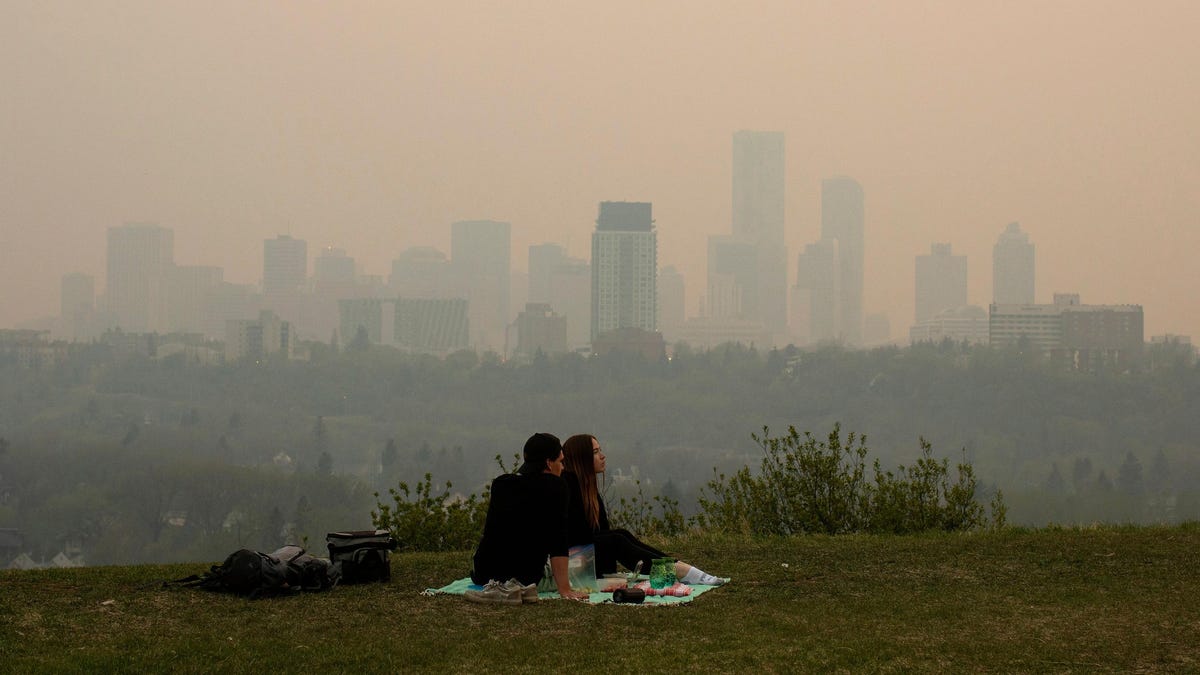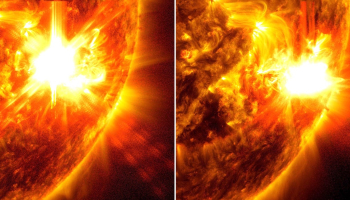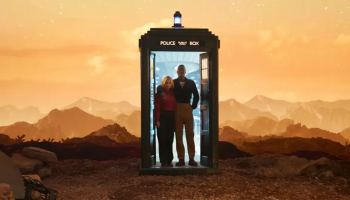
[ad_1]
Health officials in Minnesota and Wisconsin issued air quality warnings on Sunday after the smoke from wildfires raging in western Canada started to reach the Upper Midwest. And it’s causing plenty of anxiety in people across a large swath of the U.S. who are dreading the idea of spending yet another summer choking when they go outside.
Eighty-five wildfires are currently blazing in Canada, according to the National Wildland Fire Situation Report, which explains the number of fires already burning in Canada is “well above average for this time of year.” And that’s really bad news as drought in western Canada, exacerbated by climate change, has created ideal conditions for a rough fire season.
So far, the smoke has hit states like Montana, North Dakota, South Dakota, Minnesota, and Wisconsin over the weekend, but the toxic air is currently moving east and south—with experts predicting it will arrive in upstate New York later this week.
As the Minnesota Pollution Control Agency explains in its latest alert, the air is currently unhealthy for everyone. But people in sensitive groups need to take extra precautions, including pregnant people, those with asthma, children, and the elderly.
“Reduce outdoor physical activities, take more breaks, and avoid intense activities to reduce exposure. Sensitive and more exposed individuals should avoid prolonged or vigorous activities and consider shortening, rescheduling, or moving outdoor events inside,” the alert reads.
The potential problems from wildfire smoke aren’t to be taken lightly, as the Minnesota Pollution Control Agency explains. The smoke can cause severe irritation of the eyes, nose, and throat. It can also cause coughing, shortness of breath, dizziness, and fatigue, among other symptoms. Wildfire smoke can also contribute to more serious consequences for people in high-risk groups.
The U.S. experiences at least 16,000 excess deaths attributable to wildfire smoke each year, according to analysis from the National Bureau of Economic Research—which is considered a very conservative estimate. That number could rise to about 27,500 deaths annually by 2050.
Just 46% of Americans understand climate change as something that’s happening thanks to human activity, according to a Pew Research poll from August of last year. And while there isn’t solid polling data that breaks out attitudes on climate change by region, it’ll be interesting to see how those attitudes change over the next few years. After all, the Upper Midwest just experienced a winter almost entirely devoid of snow, an anomaly that would have been unthinkable just a decade ago. It’s hard to imagine how people who just experienced a freakishly snow-less winter and two consecutive summers of choking on the air could deny that climate change is making our planet worse.
Click through the slideshow to see photos from this past weekend, as well as images from last year’s bad wildfires. And be safe out there, folks.
[ad_2]
Source link






